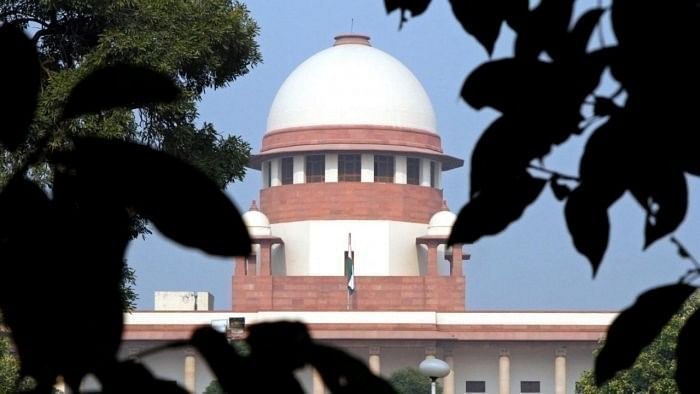
The Supreme Court of India.
Credit: PTI File Photo
New Delhi: The Supreme Court has allowed a man's plea to take back custody of his minor daughter from his sisters-in-law, who were entrusted with the child as her mother died within 10 days of the birth due to Covid-19 infection.
A bench of B R Gavai and K V Vishwanathan directed the two women to hand over the custody of the child forthwith to the appellant Gautam Kumar Das, considering the paramount principle of welfare of the child, since he was a natural guardian and better positioned to take care of his daughter.
"Merely because of the unfortunate circumstances faced by the appellant as a result of which,respondent Nos. 5 and 6 (sisters-in-law) were given the temporary custody of the minor child and only because they looked after her for few years, the same cannot be a ground to deny the custody of the minor child to the appellant, who is her only natural guardian," the bench said.
In its judgment on August 20, 2024, the court, however, granted visitation rights to the sisters-in-law to meet the child.
The appellant had given the custody of his children -- a son and a daughter -- to his sisters-in-law as their mother died within 10 days of the birth of the female child during the Covid-19 pandemic. The man was grieving as his father had also died within a few days thereafter.
After a while when he approached the sisters-in-law, they handed over the male child but denied the custody of the daughter on the grounds of her tender age.
The man subsequently remarried for better care of his children but still he was denied the custody of his daughter, forcing him to approach the Delhi High Court with a habeas corpus petition.
The High Court, however, denied him relief but granted him visitation rights.
Referring to the case of 'Nirmala Vs Kulwant Singh & Ors' (2024), the bench said that it had been observed that no hard and fast rule can be laid down insofar as the maintainability of the habeas corpus petition in the matters of custody of minor child is concerned. It has been held that as to whether the writ court should exercise its jurisdiction under Article 226 of the Constitution of India or not will depend on the facts and circumstances of each case.
The court also pointed out that a common thread in all the previous judgments concerning the custody of minor children is the paramount welfare of the child.
"We find that, apart from the appellant being the natural guardian, even in order to ensure the welfare of the minor child, she should live with her natural family. The minor child is of tender age, and she will get adapted to her natural family very well in a short period," the bench felt.
At the relevant time, the appellant had no other option but to look upon the sisters of his deceased wife to nurture his infant child, the bench said.
At present, however, the appellant and his wife can very well look after the minor girl, the bench opined, also relying upon the photographs placed on record would also revealing that after the visitation rights granted by the High Court and this Court, the minor child has gelled well with the family and the family of four appears to be happy.
With regard to the fitness of the appellant, the bench noted, he is well educated and currently employed as Assistant General Manager (Class A Officer) in Central Warehousing Corporation, Delhi. His residence is also in Delhi whereas the sister-in-law to whom the custody of the minor child was handed over to was residing in a remote village in West Bengal.
"Apart from taking care of his children, the appellant can very well provide the best of the education facilities to his children. The child, who lost her mother at tender age, cannot be deprived of the company of her father and natural brother," the bench said.
